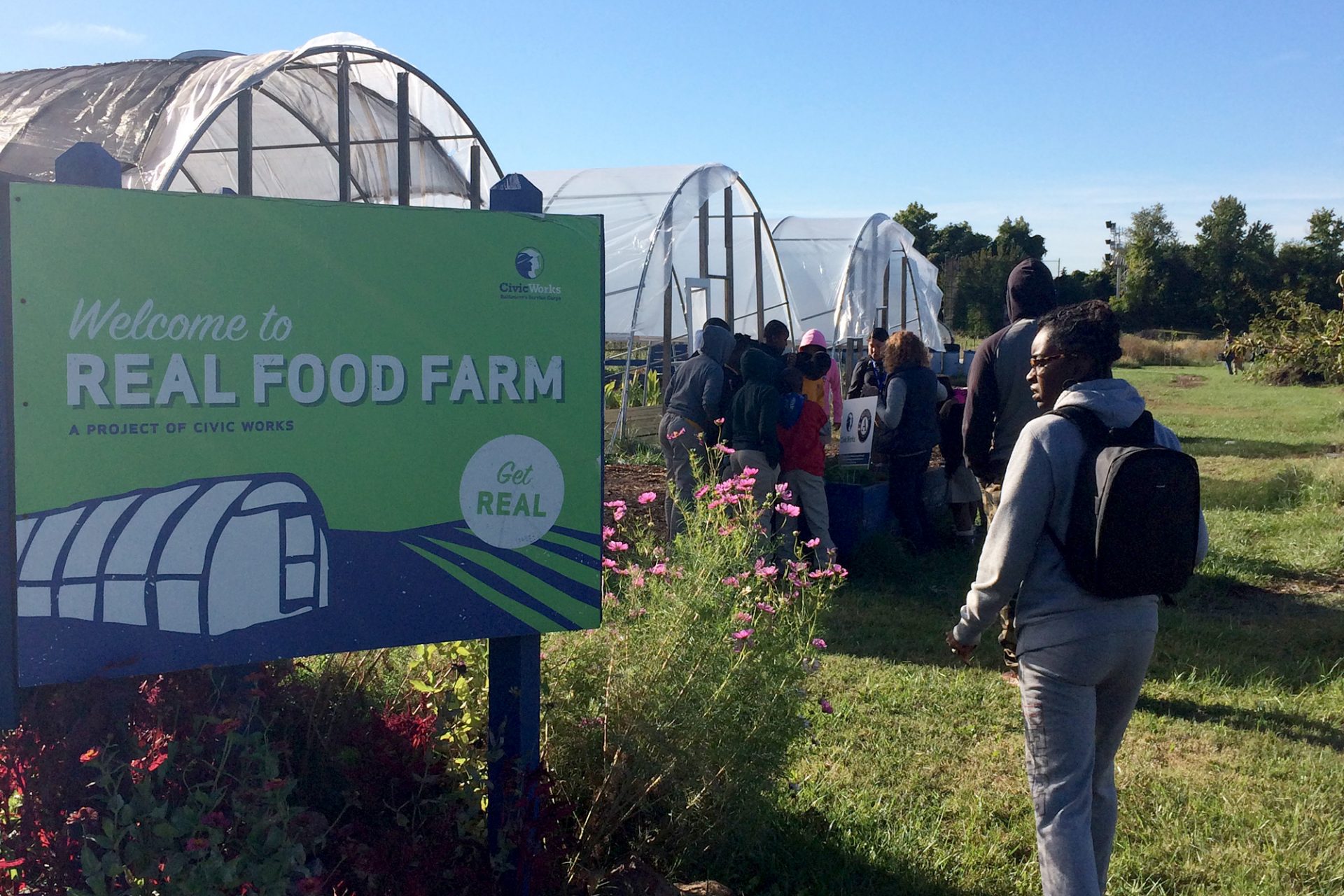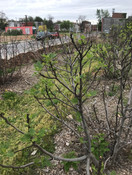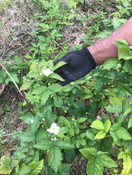Profile: Real Food Farm + a Salad Recipe!


This week we’d like to profile Real Food Farms, one of our local farm partners – many of the children from Baltimore City who participate in Days of Taste visit the Real Food Farm site in Clifton Park, and the farm is a fixture of the urban farm community in the city.
A few weeks ago I visited with Clayton Williams – Clayton has been the farm manager of Real Food for a year and a half, and before that he managed Strength to Love in Sandtown on the West Side. On the day I visited him he was working the auxiliary Real Food site on Pearlman Place, right off North avenue near it’s eastern extent. He was building a trellising system and working with volunteers.
His favorite food he grows is okra, but when I was there he was most excited that the figs were all putting on leaves and the blackberries were putting on flowers, showing signs of a good crop to come. This spring has been particularly good for fruit bearing plants, with no late frosts to kill early buds, steadily increasing temperatures, and plenty of rain, and we can all expect to be eating fantastic fruits like figs, peaches, and blackberries later this year.


Real Food’s Figs putting on their first leaves, right.
Blackberries in flower (Clayton’s hand for context, left)
Clayton has been farming and growing plants for 50 years, dating back to one of his earliest memories when one of his family members taught him to plant corn using a stick as a guide for spacing.
One part of urban farming he finds interesting is how it allows you access to resources in the community in unexpected ways. An issue Real Food has in places is that their soil pH is too high, as high as 8.5 in places. Different crops flourish in different levels of soil acidity, from very acid loving plants like blueberries which like soils as low as 4.5 or tomatoes which grow well at 5.5, to lettuces and other greens which appreciate more neutral pH soils, but almost no food bearing plants like soils that basic. Clayton is friends with some of the management at local beer brewers Waverly brewing, and he regularly goes and picks up their spent grains to use as an additive in soils to lower their pH. Beer grain is consistently around 5.5 pH (except if the beer is a sour), and it’s a great way to use an otherwise waste material for a valuable purpose, and to make neat connections all within the city of Baltimore.
In celebration of National Salad Month, we also wanted to share a Real Food Farm salad recipe with you – check out their crunchy kale slaw below!
Throughout the month of May, we are raising funds for our salad kit program, an integral piece of our Days of Taste program which allows students to bring their newfound food and nutrition learning home to their families. Give here .

